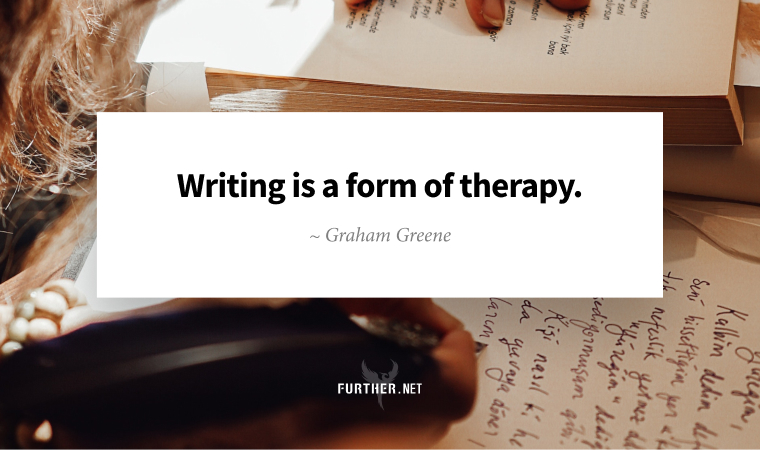
People have always mused about the power of words — language is, after all, one of the most primitive forms of self-expression. And in our increasingly chaotic times, putting your feelings into words isn’t just a good idea; it’s a must.
Case in point: one in five adults experience mental illness annually, and more than 75% of American adults report stress-related symptoms, like sleeping issues, headaches, and exhaustion. As The Washington Post points out, stress is weathering us from the inside out:
Like tree rings, the body remembers.
But this doesn’t mean hitting your social channels to vent; plenty of research shows that only exacerbates physical and psychological problems.
Instead, consider keeping your words to yourself. A daily private, stream-of-conscious writing session is the perfect way to excavate and articulate your deepest feelings and clear the decks for greater well-being.
Head Writer
While humans have been using writing to express themselves for 20,000 years, it’s only since the mid-1980s that psychology, thanks largely to the work of James Pennebaker, has recognized writing as an effective therapeutic technique. According to physician and author Silke Heimes,
Writing regularly is essentially a form of mental hygiene.
Heimes says that spending five to twenty minutes each day writing freely has copious benefits, from decreasing stress and incidences of physical and psychological illness to increasing self-confidence, imagination, and creativity. If you think you can’t write or don’t have enough time, that’s no excuse — if you can brush your teeth or take a shower, you can prioritize a quick daily scribble to wash away inner stressors, too.
The Write Stuff
There’s a specific type of writing that Heimes recommends that doesn’t require any aids like specialty journals or detailed prompts called “automatic writing.” While some definitions of this practice include a spiritual aspect, Heimes explains it as a simple way to tap into your unconscious:
… I set myself a short time window, maybe five minutes, in which I write continuously without thinking, without putting down the pen or rereading what I’ve written. The goal is to get thoughts down on paper as unfiltered as possible so that an inner censor can’t switch on — or at least doesn’t get too loud.
Fans of Julia Cameron’s The Artist’s Way might recognize this as a sister practice to “morning pages,” where you write three pages of whatever’s on your mind as soon as you wake up. According to Heimes, the time of day you write and how you write (by hand vs. typed; timed vs. number of pages) doesn’t matter; the practice is about clearing your mind, not creating a publishable work.
In other words, there’s no pressure to perform when it’s you and your pages — just a safe space to explore and express your inner truth. If that’s a novel experience for you, it’s time to get on the write track.
Know Yourself Better by Writing What Pops into Your Head (Scientific American)
